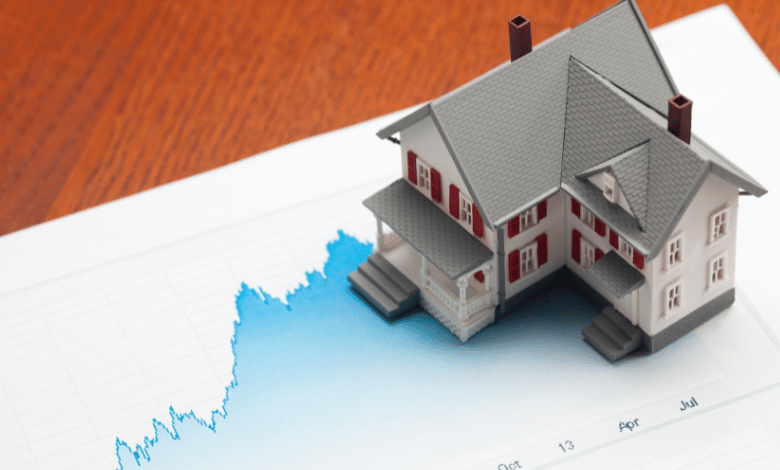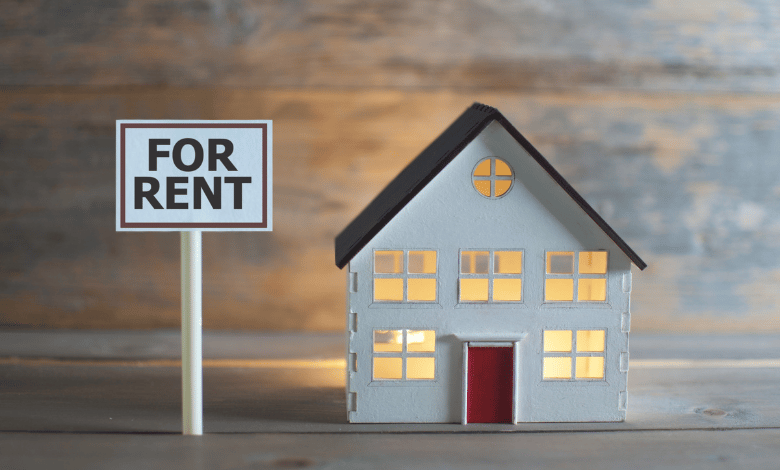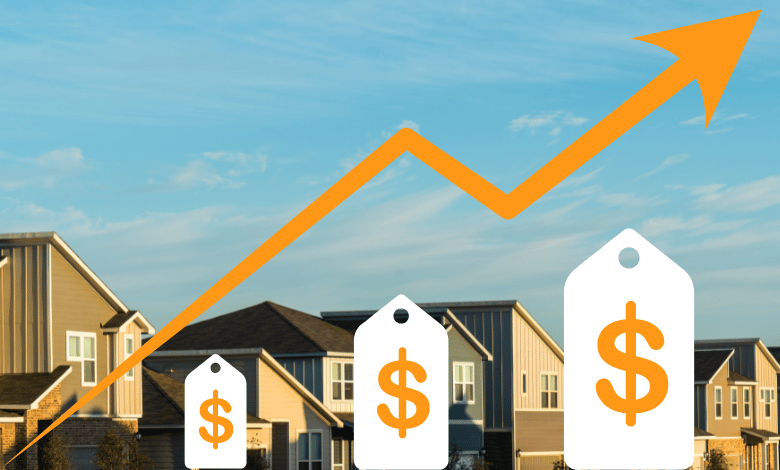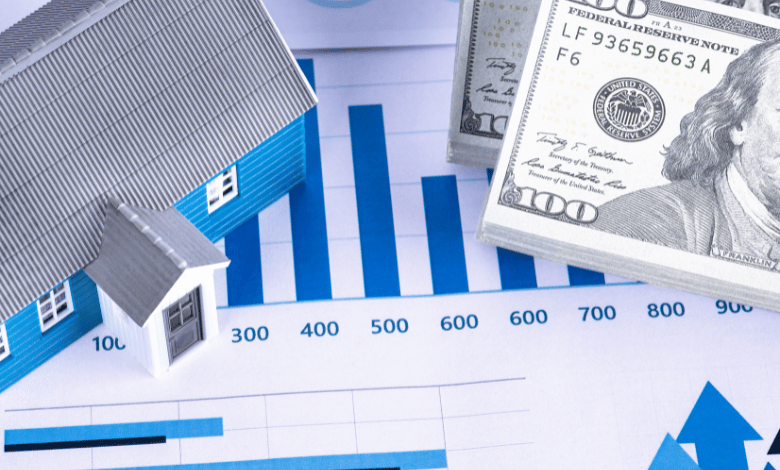Home prices have continued to rise despite rising mortgage rates and housing supply. The figures reflect a resilient, expensive Housing market.
Realtor.com reports that the national median pricing for single-family houses was $450,000 in June, up 16.9% from the previous year and 31% from June 2020. With properties exceeding $500,000, buyers are retreating. According to the Mortgage Bankers Association, mortgage applications hit a 22-year low in June (MBA).
The economy and consumer mood are affecting the housing market. On one side, the economy is on shifting sands; the GDP has dropped for two straight quarters, which some economists argue suggests a recession. But on the other hand, the job market and consumer spending are solid.
The MBA hasn’t included a recession in its baseline forecast, but they estimate a 50% chance in the following 12 months.
Current House Market Trends
Insiders urge buyers against timing the market during this economic turmoil. Buying now or waiting depends on the buyer’s motivation and situation. Even if a buyer waits until later this year or 2023, prices and loan rates are unlikely to increase.
Housing specialists are watching the economy, which is being tugged in by inflation, increasing gas prices, the Ukraine war, and Covid. In addition, rising mortgage rates are making it difficult for purchasers to get cheap property.
According to the National Association of Realtors, existing-home sales declined 5.4% from May to June (NAR). However, the median sales price of these residences rose by 13.4% to $416,000 in June. Unfortunately, this means property prices won’t fall soon.
Inflation, high mortgage rates, and record-high property prices diminish housing affordability. For example, Zillow reports that the average monthly mortgage payment is 75% more than in June 2019. And wages are not keeping pace with the cost inflation. In June, wages climbed 6.7%, which lagged behind the inflation rate of 9.1%.
MBA economists also do not anticipate a decline in property values soon. In the first quarter, they recorded a median sales price of $361,400 for existing homes, which they expect would increase to $402,000 in the second quarter and then level off at $379,000 in the third quarter.

When Should You Buy A House?
In any housing market, purchasing a home is a very personal choice. However, homes are typically the biggest single investment a person will make in their lifetime; therefore, it’s crucial to have a strong financial foundation before making a purchase.
Use a mortgage calculator to determine your monthly housing costs based on your principal payments and interest rate.
It’s not a good idea to time the market or predict what will happen the following year when purchasing a home. Instead, making purchases based on your needs and budget is best. A house you like in a neighborhood that also meets your budget may be the one for you. However, if you give up too much to buy a house, you can experience buyer’s remorse and wind up with a costly albatross that you have to sell.
Buying Advice for a Hot Housing Market
Commit yourself to keep the budget you establish at the outset. Buyers still have to contend with high costs and mortgage rates in the 6% area, despite a minor increase in the number of homes for sale.
According to Jennifer Baptista, a real estate agent with Fresh Starts Registry in Andover, Massachusetts, “there are a lot of considerations going into buying right now, and frankly, a lot of folks are terrified to make a mistake.” “As a seasoned agent, I ask my clients, “What does your intuition say?” first and foremost. Then, wait if the timing feels off. You will always find the wrong house.
According to Rachel Luna, the principal of Patriot Title in Houston, buyers are also urged to take their time to investigate the housing market. But unfortunately, people have been compelled by the scarcity mentality in the market to make snap judgments, which can easily result in buyer’s remorse.
If you find out you overpaid or just acquired a location you don’t like; you cannot return the house. In addition, the seller’s charges can amount to 10% of the home’s sale price, so if you decide to sell it again, you might lose money.
Be patient. Your financial affairs and long-term economic security matter when buying a home. Are you debt-free, you might ask? Do you have enough money for emergencies to last three to six months? Will your monthly take-home salary be no more than 25% of your monthly housing payment? Even if the market is on your side, it wouldn’t matter if you can’t comfortably meet these requirements.
Why are House Prices Going Up?

Supply Chain Interruptions That Keep Happening
Home construction plans are still being derailed by the supply chain bottleneck, which started as soon as the pandemic began. According to the Census Bureau, new buildings decreased by almost 4% in January compared to the previous month. This is one of the causes of the housing market supply shortfall and the increase in sale prices. https://www.ecb.europa.eu/
Low Inventory
Existing home sales are also lagging behind demand. According to the National Association of Realtors, unsold existing homes will decline to 860,000 by 2021.
This inventory constraint also widens wealth inequities, especially for first-time buyers and persons of color. The current supply shortage means 400,000 fewer homes for sale for $75K-$100K families than at the start of 2020. One inexpensive listing per 65 households.
Some Sellers Are Stuck
Lack of housing inventory affects homeowners who want to sell but can’t afford their next buy in today’s ultra-competitive market.
“You can’t compete if you can’t make an all-cash offer or skip inspections. The strain of today’s market provides many people with less time to sell their homes before buying a new one.

Homeowners Use Equity To Stay Put
Low-interest rates and growing property values during the epidemic prompted homeowners to cash out refinance — replacing an old mortgage with a new, higher balance one. The difference is given to the borrower in cash to consolidate debt, pay for home renovations, or other significant expenses.
According to a mortgage survey by Black Knight, a financial services company, cash-out refinances rose 33% in late 2021. If homeowners live in their homes, they may be less reluctant to sell.
Rising Interest Rate
Due to rising inflation and the Fed’s decision to raise interest rates, the average 30-year fixed rate just crossed 4% for the first time since the pandemic began. Some experts think this will keep housing values rising.
“Rising mortgage rates are causing many buyers to feel a sense of urgency to buy now instead of waiting, which is intensifying competitive circumstances, pushing up prices, and keeping properties moving swiftly,” says Realtor.com’s Chief Economist Danielle Hale.
Rent Is Rising
Many say renting is “throwing money down the drain” since rent payments don’t develop equity — they make your landlord richer. Due to inflation, rental prices will rise this year. The median rent for a one-bedroom rose 12% in February, while a two-bedroom rose 14%, according to Zumper.
Higher rent may encourage home ownership and boost home prices. However, in some places, renting may be “less cheap” than owning, says Realtor.com. Last summer, the company discovered that the first-time home purchase was more financially feasible than renting in nearly 50% of the country’s central areas the previous summer. This trend may continue in 2022.

Five Strategies To Buy A Home This Year

Get your mortgage preapproved
Kathy Braddock, managing director at William Raveis in New York City, adds, “Be prepared.” That involves receiving a mortgage preapproval so sellers know you’re serious and can secure financing. In addition, Preapproval allows you to make an offer faster in a market where some homes take bids within days.
Avoid Job Changes While Buying
“Great Reshuffle” work changes may affect your ability to get a mortgage. Quitting a job before buying a home could damage your loan application since you must prove you can afford the monthly payments.
Buy Off-Season
Spring is the homebuying season with the biggest inventory and possibilities. Look in summer and winter. Despite fewer homes and higher mortgage rates, there are fewer buyers; thus, prices tend to fall. Less competition may create an opportunity.
Make A Last-Ditch Offer
“Don’t lowball an offer,” advises Braddock. She says that today’s market has no patience for back-and-forth between buyer and seller. Instead, immediately give your best and final price if you like a home.
Get Seller Information
Working with an experienced realtor who has helped clients during the pandemic in your area is also crucial. They can provide you with tips on dealing with sellers.
Adding Hale adds that flexibility with closing and moving dates can help your offer stand out. In addition, a more significant earnest money deposit can convey to a seller that you’re a serious buyer without boosting your purchasing price.
Check More Of Our Content Down Below

